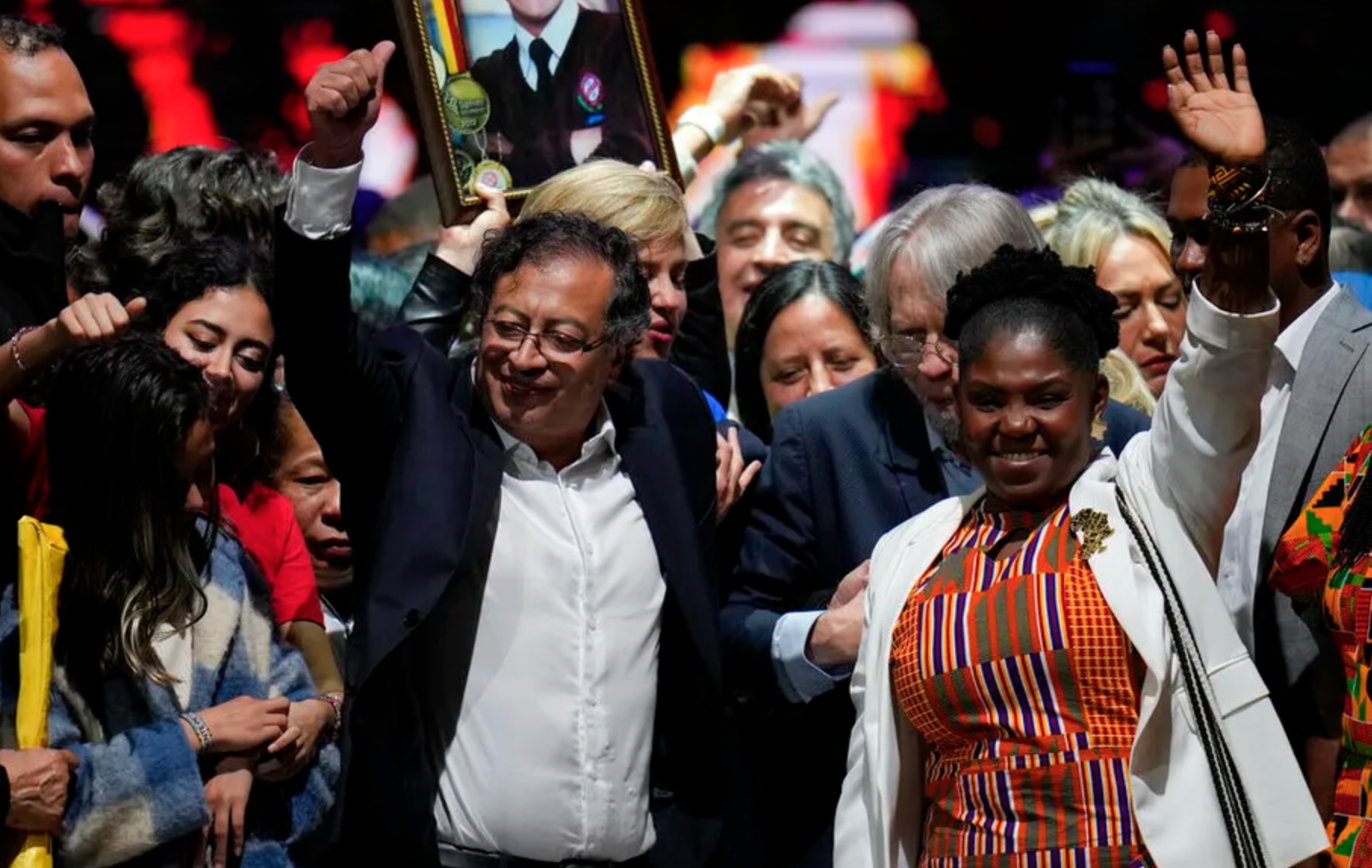The election of Gustavo Petro as president of Colombia confirmed a second pink wave in Latin America and according to the latest polls, Luiz Inácio Lula da Silva will win the October elections in Brazil.
The Brazilian elections at this point have definitely polarized between Lula and Bolsonaro. The question is how and when Bolsonaro will attempt his coup. Whether it will be before or after the elections, and how far-reaching it will be. In any case, it is unlikely that eventual police and military riots, and displays of violence by Bolsonaro’s fascists and militia supporters will prevent the elections or Lula’s investiture. Everything indicates that the coming months will be of anguish and violence, but that democracy will emerge victorious. At least temporarily, because it is clear that bolsonarism will remain alive.
Thus, at the beginning of 2023, almost the entire region will once again be governed by parties and movements on the left of the political spectrum. This will include countries that did not participate in the first pink wave, such as Mexico, Colombia, and Peru. It is quite possible that later on, the left will return to power in Uruguay and Ecuador.
This new wave, however, should be understood as a new moment, not a continuation of the first of the cycle of leftist governments in the region during the 2000s and the first half of 2010. That cycle ran out in the mid-2010s, giving way to an advance of the far-right and center-right governments, which now ends before consolidating.
The challenges of this new wave
Today’s global context is very different from that of the early 21st century, marked by the so-called “commodity boom”. Now, the situation is one of crisis, aggravated by the pandemic and the war in Ukraine, and a possible recession next year. The second pink wave will fail if it does not make self-criticism and adaptations from the first one, it will have worse results and short duration. It cannot be “more of the same” in a worse context that has been considerably transformed.
Evidently, Latin American societies are not the same as they were two decades ago. They are characterized by more unemployment, underemployment, precariousness, and “uberization”. They are traversed by neoliberal values, entrepreneurial spirit, and consumerism. The advance of the neo-Pentecostal religious denominations is related to this and is of no little relevance in this panorama. Latin American economies are once again led by the primary industry and oriented to the export of agribusiness products (or at best to low-cost factories), with vast regions being increasingly given over to illegal economic activities, paramilitaries, devastation, and land grabbing.
In this context, in addition to the urgency of growing and urgent social investments, this second pink wave could actively resume regional integration, with greater emphasis on productive integration and the movement of people. Seek to jointly confront issues such as the climate crisis, the devastation of the Amazon forest, and the definitive overcoming of the pandemic, including issues such as the reduction of neo-extractivism and dependence in the field of knowledge and technology.
The emerging social movements (much stronger in the region than two decades ago) could find in these governments, not agents to instrumentalize or silence them, but democratic spaces to condense their multiple demands, derived from multiple forms of oppression. In this sense, these governments could foster more radical and decisive versions of democratization and power sharing.
Will all this be possible, and would it be desirable for these forces of the left to return to government? I fear not.
The key lies in popular mobilization
Therefore, it is difficult to imagine that all this can happen without popular mobilization. In this sense, there is greater potential in countries where cycles of mobilization preceded the arrival of the left to power, such as Chile and Colombia.
Even so, Gabriel Boric’s government is beginning to show signs of regression and paralysis in Chile (with the approval of the new Constitution threatened). And one would not expect as much from Petro in Colombia, after his moves of moderation to arrive as a favorite in these elections – deepened to ensure his victory by a short margin in the second round. Petro’s government will do much if it democratizes Colombian politics – it has already begun to do so by “normalizing” the left, now disassociated from guerrilla and violence in that country’s imaginary.
The new wave in Lula’s Brazil
In Brazil, one can expect less. A broad front is now taking shape to defeat fascism and the real threats of the definitive overthrow of Brazilian democracy, in the process of dismantling since the 2016 parliamentary coup that ousted Dilma Rousseff.
Thus, in principle, the new government will be presented as an attempt at democratic and institutional reconstruction, and a resumption of the agenda (in worse conditions) of reducing hunger, poverty, unemployment, and economic reactivation, which characterized Lula’s first governments.
Some novelties could come from the environmentalist, feminist, black, LGBTQIA+ and indigenous mobilizations, today much stronger in Brazil than in Lula’s first election in 2002. In these areas, it will be necessary to present new proposals and ways of acting. But, once again, the key is in the streets.
Beyond the visible mobilizations, it is never possible to predict what can generate a fuse in street mobilizations such as the Chilean social outburst. It will always be difficult for the social analyst to observe the deep movements that lead to such a phenomenon until it occurs.
However, without popular mobilizations to push governments, the return of the left in Brazil and other parts of the region will probably be ephemeral, configuring a more fragile cycle than the previous one.
Translated from Spanish by Janaína Ruviaro da Silva











